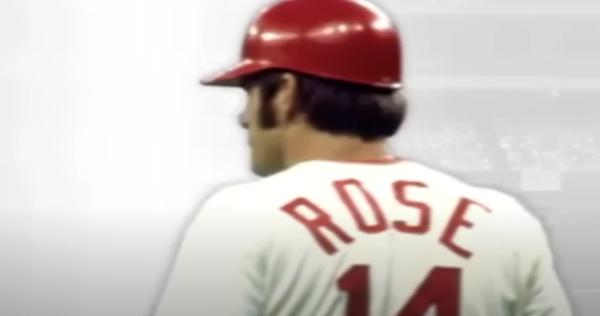
The brass of Major League baseball has succumbed to pawning inuendo at the local swap meet that almost elicited a frenzied response and haiku rap from Sir Mix-a-Lot causing an EMP in Andorra.
“Pete Rose to the Hall of Fame!” goes viral.
To compensate for the current variation of the game that at its height is listlessly sterile and at its lull a celebration of $40 million dollar a year contracts, extreme measures have been deployed, as attendance in many stadiums barely touches 15,000. This tepid enthusiasm for a sport that was once synonymous with cathedrals and allusion to the gods, includes promoting superstars more concerned with racing to the golf course rather than facing genetically modified hurlers consistently serving 104 mile per hour fastballs to voracious hitters.
In the wake of the lucrative morose, the public relations organ of the sports league resorted to fan pandering or “fandering”, by emphasizing the visceral and the human condition of conflict revolution to evoke widespread emotional response to the trials and indictments of the past.
With the recent announcement that Pete Rose and Shoeless Joe Jackson have been allegedly exonerated for the unforgivable sin of gambling on baseball while active players and earning lifetime banishments for their indiscretions, leaves the diminishing fan base of the sport questioning the integrity of the culture of a league reticent to support the skeleton of once robust professional sports empire.
Why now?
Rose died in September of last year, never knowing at least in this reality that he is and was a legend.
Shoeless Joe has been dead for over a century. The caricature of a once icon insolent and foreboding.
Rose’s demise through the Kangaroo courts of protocol and the dugout, is an inverse to the personification as Charlie Hustle, as the leader leader of hits in the history of baseball. However, statistics only tell half the story. Former all-star Ray Fosse still thanks his immortalization in the historical annals to the legendary collision 0rchestrated by Rose in the 1970 all-star game. Ironically, the lifespan of Fosse is now marked on a tombstone.
The paradox of Rose not knowing his final fate with a game he cherished as a spouse is a maudlin and savage to a plot that has yet to reach a climax. In the shadow of the protocols and bureaucracy of the major league leadership, both the legacies of Jackson and Rose will have to receive the approval of a special committee of Hall of Fame voters, and a final decision is not expected until 2027, the next time the group meets, as to whether or not Cooperstown is final destination for both players.
While exploitation is a radicalized descriptor of the delayed response of the MLB in addressing the intersection and taboo of gambling and greatness within the sport, closure is on the near horizon for a trio of diamond warriors epitomizing the past, and transcending the present. The game within the context of the tapestry, history, and fandom offered by the sobering recent announcement, reeking of coercion, is a simple disgrace and conjures elements of the malfeasance highlighting a love affair between the unsustainable politics of a culture abound in instant gratification.
The cycle of life and death, cruelty and happiness haunts a brand forever commercialized, as existence is contingent upon innovation that is impossible for a sport that has far surpassed a critical mass and is destined for extinction with the forthcoming attrition dictated by the onset and wrath of the younger generations.